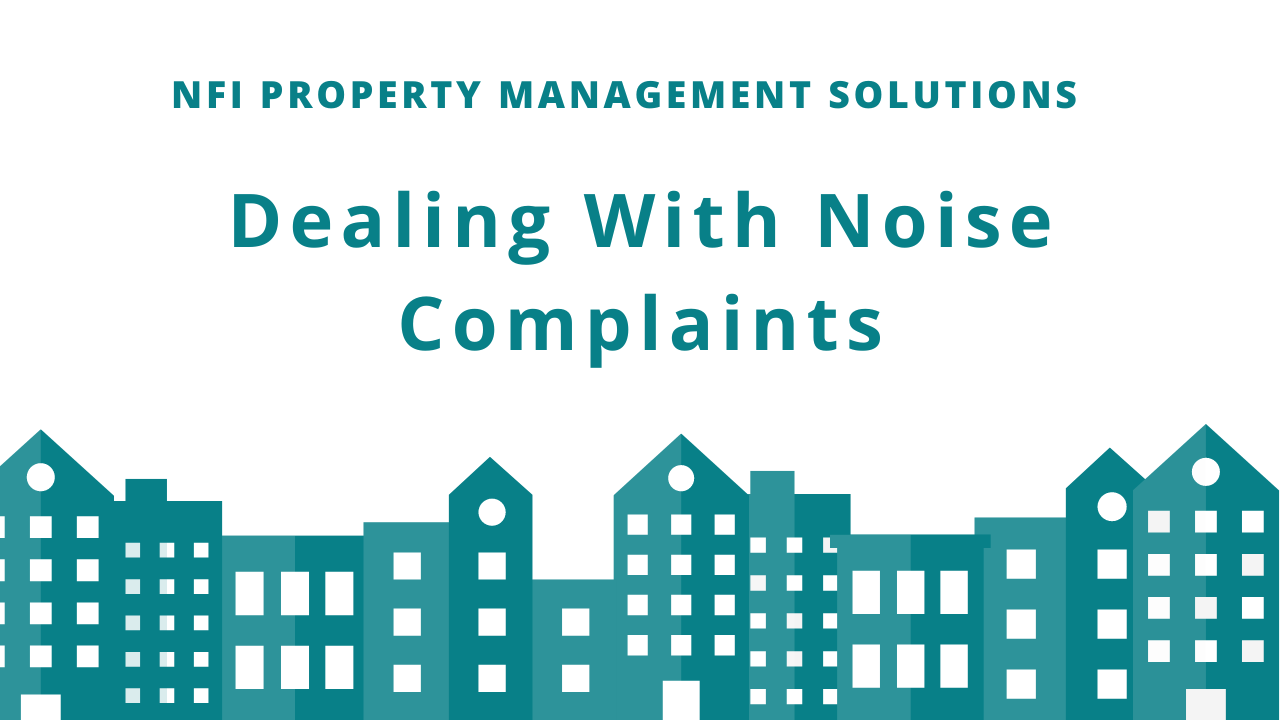
Being a landlord comes with a lot of duties and responsibilities, including keeping up with current regulations, fixing property issues, and addressing tenant grievances. A typical issue landlords encounter is managing noise complaints. It's your job to look into and resolve noise issues involving your tenant, whether the complaints come from other tenants or external parties.
Resolving disputes over loud noises, whether between tenants or involving outsiders, can be a drawn-out process. You need to figure out if there's a real problem, and then determine the best solution.
You may also need to address complaints from others about noises coming from your tenant. As the landlord, part of your role includes ensuring tenants can enjoy a peaceful environment.
Steps for Landlords to Handle Noise Complaints Effectively
Handling complaints effectively is crucial for maintaining peace in your property and ensuring tenant satisfaction. Here’s a practical guide to help you manage noise complaints like a pro.
1. Investigate the Validity of the Complaint
Noise complaints might be about anything from loud parties to everyday sounds like chatting or walking. It's critical to recognize the difference between irrational disruptions and regular daily activities.
A tenant practicing with their band late at night, for example, is probably the subject of a legitimate noise complaint, while footsteps coming from an above flat could be regarded as an everyday nuisance.
2. Responding and Assessing Noise Complaints
Respond promptly to complaints and, if possible, visit the property to assess the situation yourself.

A quick response is key. Listen to the tenants' concerns and keep them informed about the actions you are taking. If law enforcement needs to be involved, make sure to update your tenant on the progress.
Consider these factors when evaluating a noise problem:
- How many complaints have been made?
- Have you personally heard the noise?
- How often do these complaints occur?
- Is there official documentation of the noise?
- Is the noise part of normal activities like walking or talking?
The answers will help you decide if the complaint is valid and what actions to take.
3. Handling a Valid Noise Complaint
When dealing with legitimate noise complaints, a swift and proactive response is paramount. Engage directly with the noisy neighbor or tenant, offering a thorough description of the problem, suggesting viable solutions, and diligently documenting each step taken for resolution.
In cases where disturbances arise from upstairs, consider implementing practical measures such as floor renovations to effectively minimize the impact of noise. This fosters an improved and harmonious living experience for all tenants within the property.
4. Handling a Noise Complaint That Isn’t Valid
Should your investigation reveal that the complaint lacks merit, provide reassurance to the concerned tenants, clearly stating your findings. Reinforce good neighborly conduct and confirm the comprehensive examination of the complaint.

Clearly articulate your decision, particularly if there is a lack of evidence supporting the complaint. Open and transparent communication helps maintain a positive landlord-tenant relationship and ensures understanding among all parties involved.
Preventative Measures
- Establish Quiet Hours: Setting up quiet hours can prevent excessive noise problems. These hours guide tenants on when to be extra mindful of their noise levels. Ensure you also define what constitutes "excessive noise" Check local laws for any existing quiet hour regulations.
- Thorough Screen Tenants: During the lease process, thoroughly screen potential tenants by running background checks and going over noise policies. Verify that they are aware of and consent to following these rules.
- Upgrade Flooring: Noise from upper floors can be a major problem in multi-story buildings. Modern flooring can significantly lessen this. Adding soundproof underlays, laying thicker carpets, or selecting materials like rubber floors that naturally absorb sound are other options.
- Property Inspections and Maintenance: Regular property inspections are key to addressing noise concerns promptly, ensuring a comfortable living environment. Listen for unusual sounds, check for structural issues, and conduct ongoing maintenance, such as updating insulation, to minimize noise transmission.
- Proper Communication: Create convenient channels, like an online portal or a dedicated phone line, for tenants to report noise issues. Respond promptly to show commitment to a peaceful environment. Regularly review and act on feedback for ongoing improvements.

- Noise Clause: Ensure noise regulations are clearly outlined in rental agreements, delineating quiet hours, acceptable noise levels, and associated penalties. Regularly reassess and modify these provisions to align with any changes in local legislation or accepted practices, fostering a harmonious living environment for all tenants.
Conclusion
As a landlord, managing noise complaints is an integral part of ensuring a peaceful living environment for tenants. Investigating the validity of complaints, responding promptly, and assessing situations are crucial steps in effective complaint resolution.
Working with an experienced property management company like NFI Property Management Solutions ensures a swift response, addressing the issue directly with the noisy neighbor and exploring feasible solutions like floor renovations to minimize disturbances.
With the help of NFI Property Management Solutions, you can establish and enforce noise regulations, fostering a tranquil atmosphere in your rental properties.
Contact NFI Property Management Solutions for expert services in handling noise complaints and ensuring tenant satisfaction.